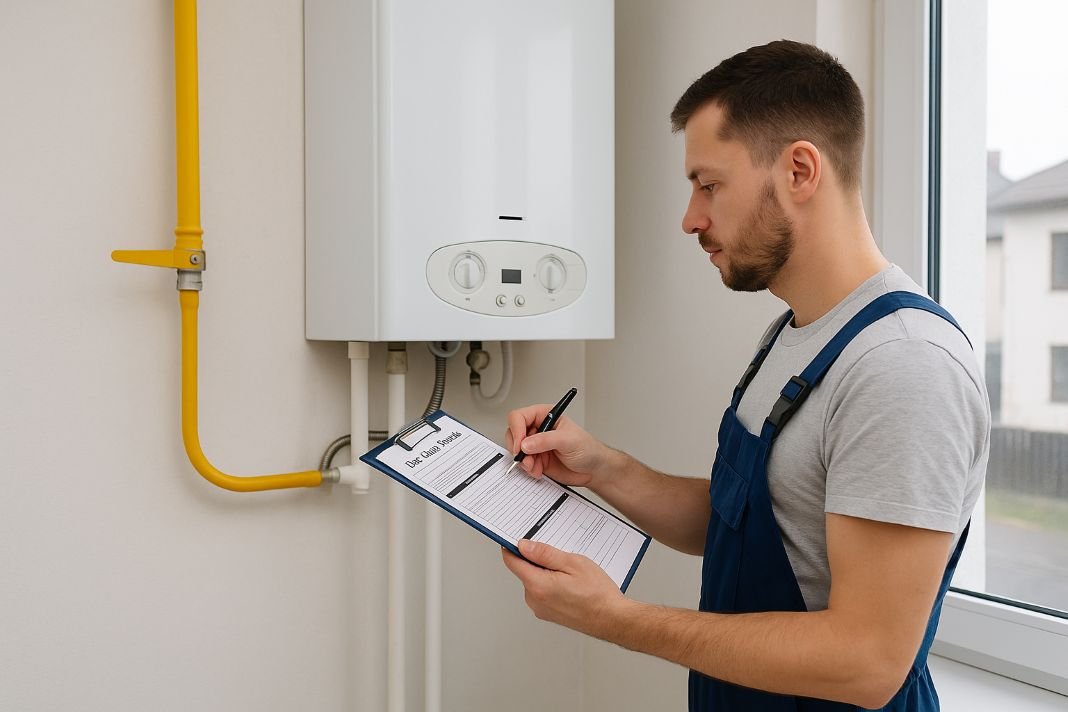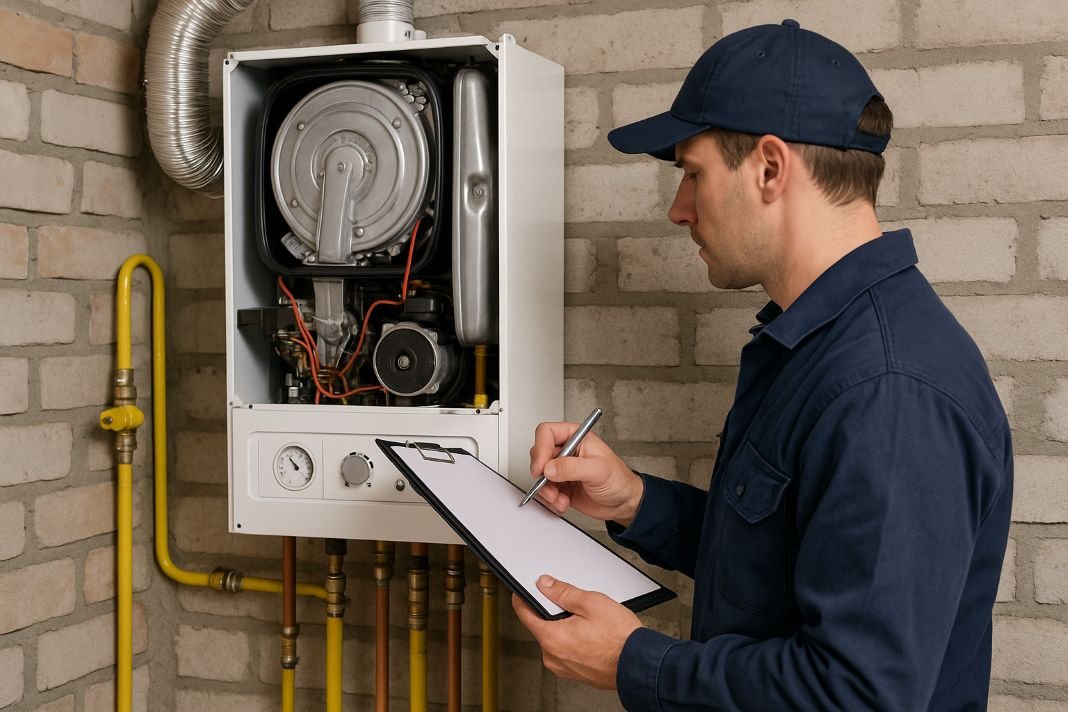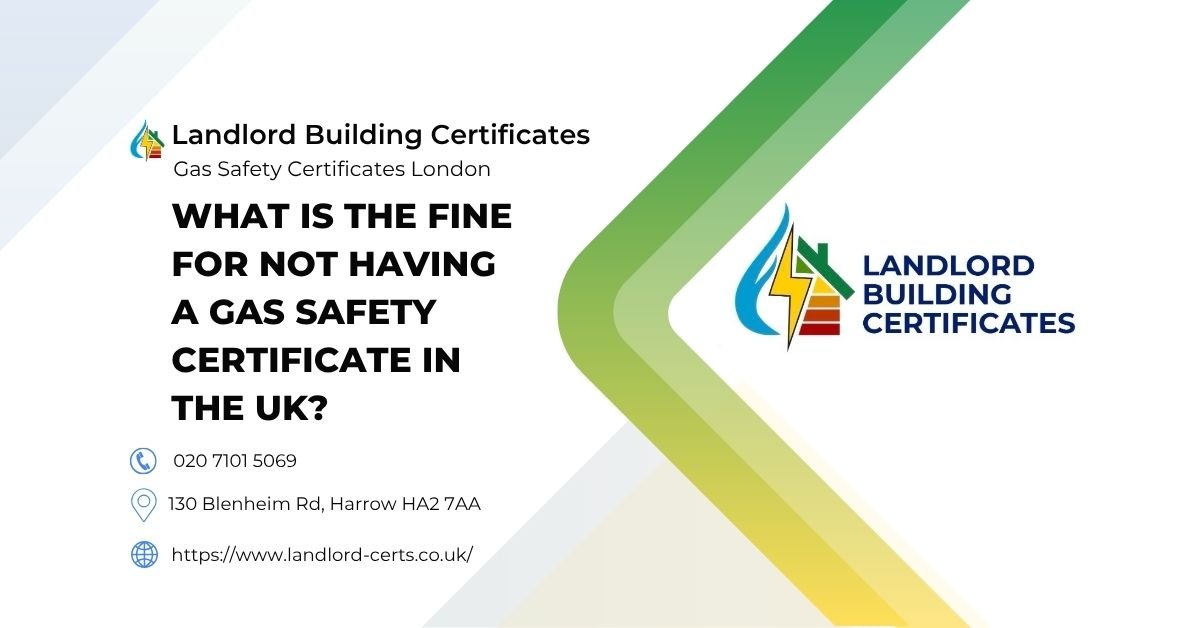What is the fine for not having a gas safety certificate in the UK?
Landlords across the UK must hold a valid gas safety certificate for any rental property with gas appliances. Without one, they could face legal action, significant fines or even imprisonment. These penalties may apply per appliance or per property. In the most serious cases, there is no limit to the fine.
Here's What We Have Covered In This Article
Why gas safety compliance matters for London landlords
A gas safety certificate is similar to a yearly service for your gas system. It might appear routine, but it protects tenants, your finances and your reputation.
If this legal duty is ignored, the consequences can be serious. Not following the rules puts lives at risk, may invalidate your insurance and can lead to enforcement from local councils or the Health and Safety Executive. In London, where the rental market is especially active, landlords must prioritise rental compliance to avoid conflicts with tenants and letting agents.
Having regular inspections shows that you take safety seriously. It also prevents future problems like fines, delays and complaints.
Understanding gas safety certificates: what every landlord needs to know
A gas safety certificate, sometimes called a CP12, confirms that gas appliances, flues and pipework in a rental property have passed the required safety checks. Only a Gas Safe registered engineer can carry out these inspections.
What does it include?
-
All gas appliances, including boilers, ovens and heaters
-
Pipework and flue safety
-
Confirmation the appliances work safely
-
The engineer’s Gas Safe ID and details
Who needs one?
Any landlord who lets a property with gas appliances. This includes:
-
Individual rental properties
-
Houses in multiple occupation
-
Short or long term rentals
How often do checks need to be done?
Every 12 months. Landlords must give tenants a copy of the certificate within 28 days of the check or before they move in.
Your legal duties: gas safety law for UK rental properties
The Gas Safety (Installation and Use) Regulations 1998 clearly outline landlord gas safety responsibilities. These rental property obligations are essential for maintaining legal compliance. These rules apply across all UK rental properties and are enforced by the Health and Safety Executive and local councils.
Landlords must:
-
Arrange a safety check by a Gas Safe engineer once a year
-
Keep copies of each record for at least two years
-
Give tenants a copy of the most recent certificate
-
Make sure all gas fittings and appliances are safe at all times
These responsibilities apply no matter the size or type of rental property.
How much are the fines for missing a gas safety certificate?
If a landlord fails to meet gas safety rules, the penalties can include:
-
Up to £6,000 for every breach
-
Unlimited fines for serious cases taken to Crown Court
-
Up to six months in prison
Each gas appliance without a valid certificate could count as a separate offence. Even short delays can trigger fines.
How courts decide on fines depends on the danger involved, how often the landlord has broken the rules before and whether they tried to fix the mistake quickly.
Letting a New Build Property?
Get your gas safety sorted before tenants move in.
Real fines in London: recent cases and what they teach
Hammersmith and Fulham Council case
In 2011, the London Borough of Hammersmith and Fulham was fined £83,600 plus £15,553 in costs by the Health and Safety Executive. The council had failed to carry out yearly gas safety checks in several rented properties. The court said the council had breached the Gas Safety (Installation and Use) Regulations 1998.
This case highlights how seriously enforcement bodies treat noncompliance. Even councils face serious consequences. Private landlords must meet the same standards to avoid similar outcomes.
Who can fine you? Understanding HSE enforcement and how it works in London
Most investigations begin with a local council, but more serious issues can escalate to HSE enforcement teams. These bodies carry out the gas safety inspection process and can issue compliance notices or begin court proceedings. In more serious cases, the Health and Safety Executive may get involved. Prosecutions go to court if the issue is not resolved.
What usually happens:
-
A complaint or inspection triggers a check
-
The council may send a warning or notice
-
Landlords are given time to put things right
-
If they do not, fines or court action can follow
Letting agents might organise gas checks, but the legal responsibility remains with the property owner.
Pro Tip: Keep digital and printed copies of all certificates for quick tenant access or inspections.
Book Your CP12 Today
Get fully compliant gas safety checks with CP12 issued fast. Ideal for landlords and homeowners.
Electrical safety laws vs gas safety: what landlords must know
Landlords often focus on gas safety but overlook their responsibilities around electrical safety. Both are legal requirements and carry enforcement risk.

While CP12s need annual checks, EICRs require renewal every five years. Both must be available for tenants and may be requested by enforcement officers at any time.
The ripple effect: insurance, tenancy problems and eviction risks
Many landlord insurance policies, such as those from Aviva, Direct Line, or Simply Business specify that noncompliance with legal safety requirements may result in denied claims. For instance, if a property experiences a gas-related incident and the landlord does not hold a valid CP12, the insurer can lawfully reject the claim.
A missing gas safety certificate doesn’t just mean a potential fine. It can also lead to wider consequences:
- Your insurance policy may be cancelled
- You may not be able to use a Section 21 eviction notice
- Tenants may raise complaints or delay payments
These problems often take time to fix and can lead to larger legal or financial costs.
Missed your renewal? What to do next
If you realise your gas safety certificate has expired, act quickly. Here are the steps to minimise penalties:
- Book an inspection immediately: Contact a Gas Safe engineer and document the date you scheduled the check.
- Inform your tenants: Let them know an appointment is booked.
- Gather evidence: Keep email confirmations, texts or written notes.
- Notify the council if required: If contacted by the authority, share your booking details and communication record.
Taking these steps shows a genuine attempt to comply, which courts may consider favourably.
How to defend yourself: common mistakes and reducing penalties
Some landlords receive fines despite trying to do the right thing. Courts may reduce the penalty if there is clear evidence of effort.
Common situations:
- Tenants refuse to give access
- No available engineers within deadline
- Missed reminders or paperwork errors
What helps:
- Keep written proof of appointments and contact with tenants
- Use calendar alerts or landlord software
- Book a check immediately if there is a lapse
Courts may dismiss or reduce a fine if you can prove you acted responsibly once aware of the issue.
London landlord compliance checklist: stay on top of property compliance duties and avoid fines
How can landlords stay on top of compliance?
- Book annual gas safety checks every 10 to 11 months to stay ahead
- Keep certificates stored both digitally and in paper form
- Share the certificate with tenants within 28 days of the inspection
- Use a calendar to track expiry dates across your portfolio
- Work with engineers registered on the official Gas Safe Register
- Log any problems accessing the property for checks
- Update tenancy agreements to reflect your responsibilities
FAQs: gas safety fines, rental compliance and certificate rules for London landlords
Can I be fined for being a few days late?
Yes. Even short delays can result in action if found during an inspection.
What if my tenant won’t let the engineer in?
You need to show written proof that you tried multiple times to gain access. Use emails, letters and text messages.
How long should I keep certificates?
At least two years, though many landlords store them for longer.
Will I be fined for each appliance?
Possibly. If multiple appliances have no certificate, each one can count as a separate offence.
Where can I find a registered engineer for a gas safety inspection?
You can use the official Gas Safe Register to find qualified engineers. Here’s how:
- Visit gassaferegister.co.uk
- Click ‘Find an Engineer’
- Enter your postcode or town
- Choose the type of work you need (e.g. landlord gas safety check)
- Review the list of nearby engineers and check their ID numbers
Always verify the ID number of the engineer when they arrive to confirm they are still registered.




